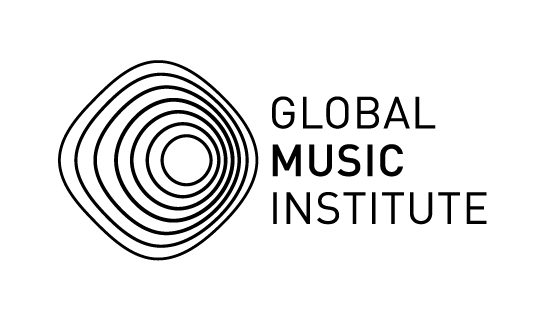
19 Sep In Focus – FEMWAV & The Organic Support Program
Music is a language made for everyone, yet there seems to be a disparity and lack of accessibility in the Indian music industry. Realizing the absence of space for women and non-binary artists in the music industry is a network creating massive waves of change – FEMWAV. Read to learn more about their mission and goals from a woman of high caliber, Ananya Roy.
FEMWAV
“There is a comic I enjoy in which people stand on a pedestal to see a cricket match. There is someone quite short, a little taller, and then someone extremely tall. The latter may not need that pedestal, but someone short may need itin order to reach that same height and have a clearer view. At FEMWAV we help by providing that pedestal”.
With a fluent speech and enthusiastic tone, Ananya Roy makes you want to listen to her mission and purpose. A software developer, data scientist, singer, and musician, she is an influential and vigorous woman. Over a call, we discussed the network empowering female and non-binary musicians by creating opportunities and inclusive spaces- FEMWAV. “We’re trying to connect people with less accessibility and resources to artists that can help them find purpose and grow in their careers”. FEMWAV is an ‘empowerment network’ bringing horizontal change within the Indian music industry by highlighting the creative output within the community. “It’s about amplifying and empowering work done by the female and queer talent in India.”
Research, Advocacy, and Action
The lack of diversity and its statistics within the industry is astonishing. “We looked at the current state of research, advocacy, and action happening towards specific individuals and groups, and we realized there is a disparity. There are almost 15 men to 1 woman within the music industry, whether you look at musicians, artists, professionals, or management”. Recognizing the lack of inclusive spaces and circumstances for women and non-binary artists, FEMWAV is dismantling the barriers posed by one’s gender to accessibility and opportunity. “We’ve come a long way, but there is a long way to go. We wanted to be very sensitive to the fact that empowerment should be for all, so access to music education and the opportunity should be for women and non-binary people across all social and economic backgrounds. This is why we wanted to bring in people who might not have that sort of access to resources and opportunity, leading us to collaborate with different NGOs and looking at different kinds of power imbalances within the music industry”.![]()
Several norms and stereotypes have pre-existed in the industry which has caused a lot of social conditioning within the community. Tackling inequality is no small task and a conversation with Ananya made me realize how stereotypes exist in the technical and logistics segment of the industry. “You walk into most studios and people are almost surprised to find a female audio engineer. You have other instrumentalists and performers coming into the scene and they judge them solely based on gender and not on their actual work.” This is where the need to create inclusive space matters. “We want people in the industry to realize that diversity is profitable. It is an absolute win-win situation and we’ve seen that through the massive queer evolution in India. How we have many more pride parades, events, and festivals, and corporations are grasping on to it because they realize there is a massive market here. There are so many people who want to come out and express themselves.”
FEMWAV is not only building a bridge toward inclusivity for women and queer artists, it is making the human experience easier. “When it comes to diversity, finding young talent is a challenge because they are themselves socially conditioned. A lot of promising young female and queer artists might not believe in themselves and they might not have the confidence to put themselves out there. The number one challenge is helping them find the confidence to come out and express themselves”.
The network has been in the works of bringing change since 2019 and on this journey, they have met with countless numbers of women and queer artists who have encouraged and supported their mission. “Artists like Vasundhara Vee, Manmeet Kaur, Kalyani Sakkarwal, and many more have been so encouraging and supportive to amplify that message and give it another platform. There are all these amazing women out there and if we just listen to them there is so much to take away from that.”
Organic Support Program (OSP)
FEMWAV launched its latest project called the Organic Support Program (OSP). The program aims to provide the building blocks and hands-on knowledge to new and upcoming female and non-binary artists through a mentor-mentee module. “The program allows us to have music education that is independent of economics for those who will not be able to access these resources. From the basics of audio, sequencing ideas, mixing, creating media, and how to network and figure out your revenue model – we want to provide women and non-binary artists who might not have the resources and privilege to attend music school withthis knowledge.”
OSP is a six-month program educating and providing the essential vocabulary for the artist to understand the industry. When asked what skills they want the mentee to walk away with, Ananya mentions self-confidence. “Number one thing is confidence and being able to reaffirm their passion for music. The main thing that we believe in with our Organic Support Program is that nobody is being forced into something out of their will, that everyone is here because they actively want to learn, and that there’s a sense of mutual respect and admiration between the mentor and mentee. That is the goal, to see people grow in careers and have a newfound confidence in their art.”
My conversation with Ananya led me to explore and analyze the term “Distributed Empowerment” which is the manifesto of the network. “This is where privilege plays a role. You have people to protect you as privilege allows you to surround yourself with friends or people you trust who will make you feel safe. This doesn’t mean that privileged female and queer people are immune to safety issues, but it helps to have that surety. Different people will need different and varying levels of empowerment. Somebody from a higher level of privilege might not need as many resources or access as someone from a rural area. It’s as simple as providing someone with a laptop and internet so they can see the world of music and culture.”
What Now?
FEMWAV is starting a much-needed conversation regarding equality in the industry. Apart from the Organic Support Program, they have curated a robust body of work such as DivHerSify, G.A.N.G, Her Tempo Podcast, SynthFarm, and Fembot5 to help women and non-binary artists all over India. When asked what’s next for FEMWAV, Ananya was expressive and ambitious. “We want to create a FEMWAV EP and music festival. We want to be able to amplify the music of the artists we work with. Right now we are loudening their voices. We want to create a compilation of music from different parts of the country created by female and non-binary artists. We’re looking forward to waves of changes in the industry and having different kinds of representations at live music venues and festivals across India and to be able to spread our message and create a safer space.”
The Organic Support Program launched on the 27th of August at Global Music Institute. “It was the perfect space as our mentors were very excited about it. To see an exchange of ideas happen was truly beautiful, and we can’t wait to see that implemented in the next six months. We’re starting the first cohort on 1st September, virtually and on the ground through simulations happening in Bangalore, Mumbai, and Delhi, where artists affiliated with FEMWAV are going to NGOs. There will also be virtual meet-ups for any female and non-binary artist in India to reach out to us, and we will connect them with a mentor based on the skills they would like to learn. We’re trying to build this out of a community that has empathy and patience, which is needed when learning something.”







No Comments